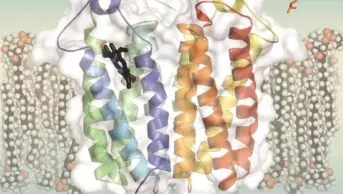
Courtesy: Rob Davidson
A leading data scientist has cast doubt on whether the UK can continue to participate in the Horizon 2020 programme after the country leaves the European Union.
This follows publication of a joint report, presented by UK prime minister Theresa May and the president of the European Commission, Jean-Claude Juncker on 8 December 2017, which said that after departure from the European Union, the UK would continue to participate in EU programmes financed by the 2014–2020 multiannual financial framework (MFF), including Horizon 2020.
Horizon 2020 is an £67bn EU Research and Innovation programme which was set up in 2014. It aims to ensure Europe produces world-class science, removes barriers to innovation and makes it easier for the public and private sectors to work together in driving innovation.
The UK has consistently been a leading beneficiary of the programme, having received around 15% of the funding to date.
The joint report, which outlines progress during phase 1 of negotiations under Article 50, confirmed that eligibility to apply to participate in EU programmes and funding for UK participants and projects would be unaffected by the UK’s withdrawal from the EU for the entire lifetime of such projects.
But, Rob Davidson, director and co-founder of Scientists for EU, said participation was unlikely as it would cross one of the UK prime minister’s two ‘red lines’.
To apply for a Horizon 2020 grant, a country has to be able to agree that its government would accept the jurisdiction of the European Court of Justice, he said. But Theresa May has said that is not on the agenda.
May’s other red line, which Davidson described as one of the problems with science and Brexit after the referendum, is the end of free movement.
“Science requires exactly the specialisation of skills and labour that freedom of movement was designed to facilitate. Not only that, but Switzerland was recently, disastrously, downgraded for only restricting free movement,” he said.
“Theresa May’s two red lines are completely opposed to participation in EU science. Furthermore, David Davis has suggested that nothing [in the joint report] is binding, so where is certainty and confidence to be found?” he added.
The joint report also confirmed that EU citizens will retain the right to stay in the UK after Brexit, and that this right will be protected even if they are out of the UK for up to five years.
“It is of paramount importance to both parties to give as much certainty as possible to UK citizens living in the EU and EU citizens living in the UK about their future rights,” the report said.
Steve Bates, chief executive of the BioIndustry Association welcomed the joint report but said it was now crucial that the UK and EU agree a transition period to ensure that the supply of medicines to patients in the UK and across Europe is not affected.
“Public health and health security should be the first priority for the second phase of talks, and we stand ready as a unified life science sector to provide expert input on such a process,” he said.
He added that greater certainty in key areas would be welcomed, particularly regarding the availability of medicinal products tested and released before the Brexit date of March 2019.
The Association of British Pharmaceutical Industry (ABPI) said that progress made on citizens’ rights was welcome news for pharmaceutical companies and its employees, but that the regulation and supply of medicines for UK and EU patients should now be prioritised as negotiations go into phase two.
“A cooperation agreement between the UK and the EU on medicines is the best way to ensure that there is no disruption to 500 million patients receiving the medicines that they need,” said the ABPI spokesperson.
“This breakthrough, alongside a single-step fixed-term transition period that allows companies to make any necessary changes to the supply chain, will be critical.
“Protecting public health in the UK and Europe must be a priority.”
The joint report will be put forward to the European Council (Article 50) on 14–15 December 2017.


